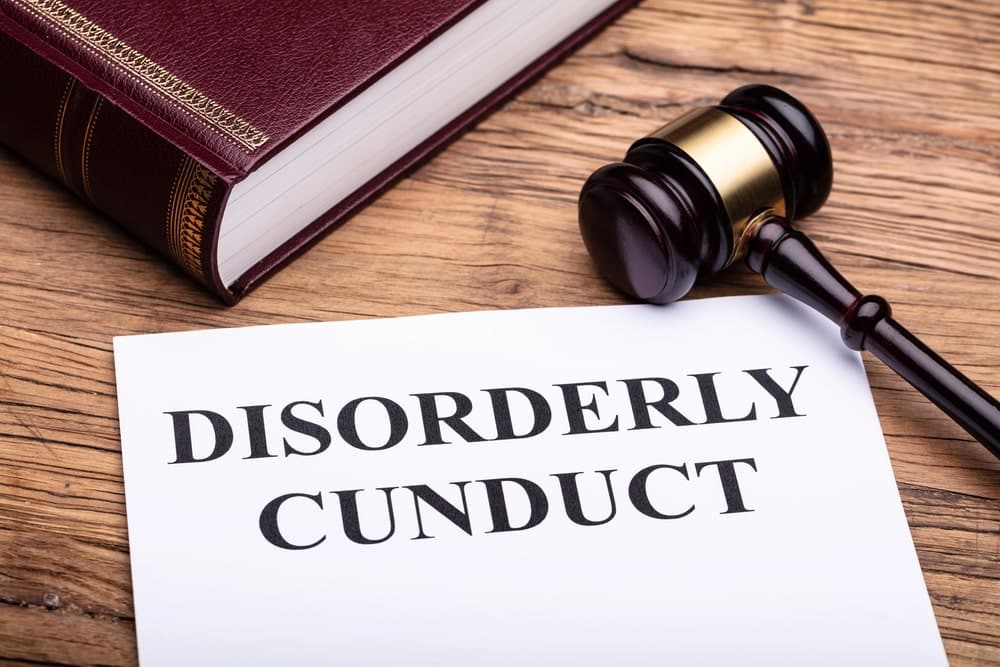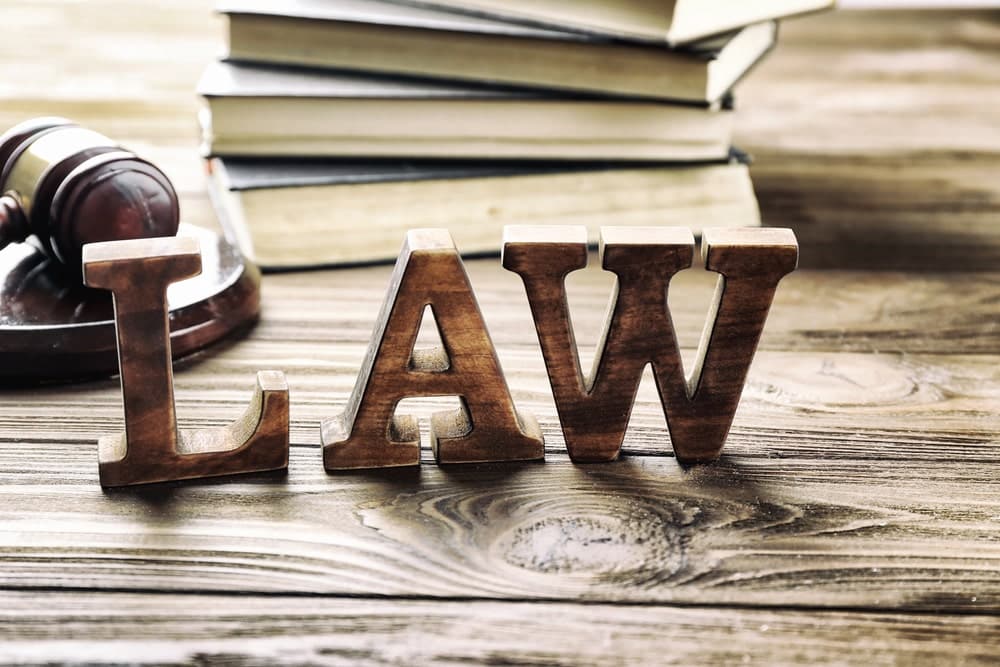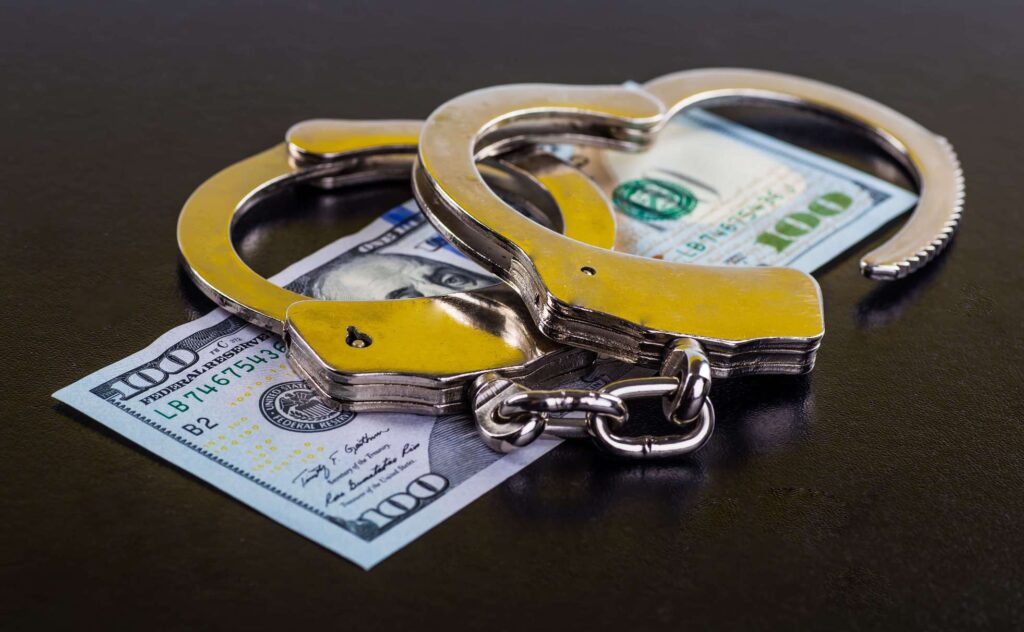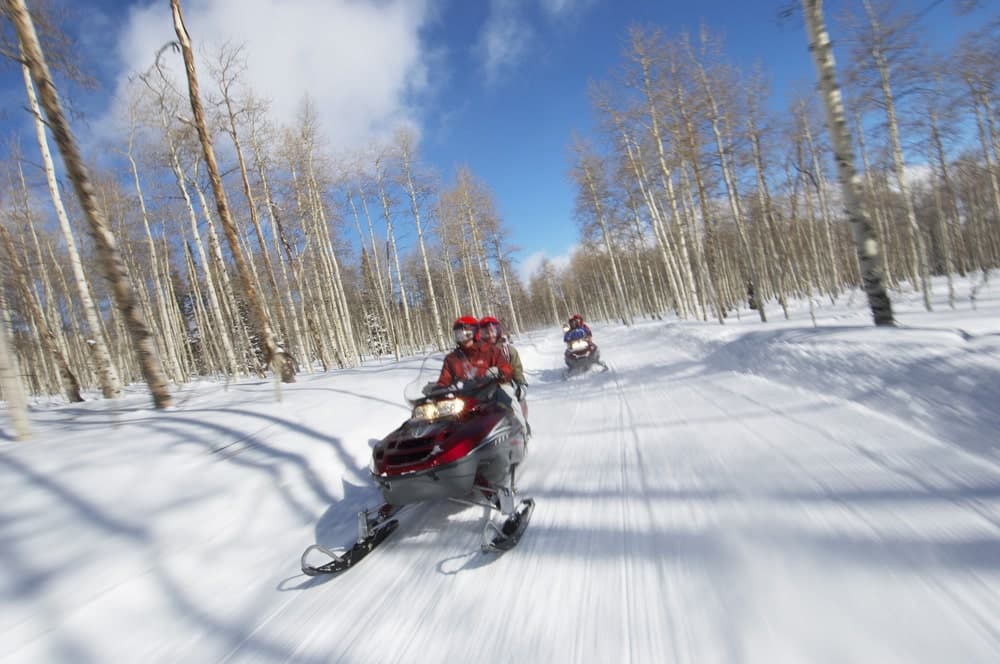With approximately 100,000 snowmobile registrations and more than 13,500 miles of groomed trails, the state of Maine knows how popular the activity has become, and has enacted numerous laws and regulations to make sure that it’s done in a safe, and non-destructive, way.
Call 207-571-8146 or contact us online to schedule a consult with one of our highly skilled criminal defense & OUI lawyers, serving Southern Maine, today.
Table of Contents
Snowmobile Registration
With only small exceptions, snowmobiles have to be registered in order to be used on the trails in Maine. For Maine residents, new registrations can only be done through a registration agent, or at the Department of Inland Fisheries and Wildlife office, in Augusta. Renewals can be done online or using a paper application. Both require a small fee. Non-Maine residents can make new registrations or renew old registrations online. Registrations are good for a year, though non-residents have the option of getting a 3-day registration, as well. After registering, your registration stickers will arrive in the mail. These stickers must be displayed on the snowmobile, and the registration certificate must be presented to law enforcement if they request to see it.
Snowmobile Violations
There are numerous ways of driving a snowmobile unsafely. To protect snowmobilers, the laws of Maine have described many ways of driving that will result in snowmobile drivers being penalized.
Drivers are required to stop for both uniformed law enforcement, as well as landowners when they are requested to do so. Additionally, snowmobile operators have the responsibility of notifying law enforcement of any accidents or injuries on the trails.
Snowmobile drivers can’t drive on plowed roads, or public highways, if there are notices stating that they should not do so. This includes driving on the road itself, a sidewalk running alongside the road, or on the plowed snowbanks along the roadside. If you’re trying to cross a public road, you must stop before entering the roadway, and give vehicles right-of-way. Once it’s safe, you can cross the street in as short a distance as possible, staying on the extreme right-hand side of the road while on it. There are certain instances where snowmobiling on the roadway is permissible, though, such as weather emergencies, and during snowmobiling events.
Many snowmobile trails, like roads, have two directions, and drivers have to keep on the right-hand side. While there is no stated speed limit for driving a snowmobile, drivers have to keep to a reasonable speed that won’t endanger themselves or other drivers. What is “reasonable” is based on the conditions at the time, so it can fluctuate. Driving under the influence of drugs or alcohol is as illegal on a snowmobile as it is in a car, though.
There are also requirements for things like noise, lighting, and headgear, and restrictions on where snowmobile drivers can go.
Call 207-571-8146 or contact us online to schedule a consult with one of our highly skilled criminal defense & OUI lawyers, serving Southern Maine, today.
Landowner Liability
Keeping trails open on private land is a tricky business. The public gets to enjoy more trails but is also put at greater risk, because a private landowner will not be maintaining the trails as well as the state maintains the public trails. A lack of trail maintenance results in less safe snowmobiling terrain, which can lead to injuries, which can lead to lawsuits. For a landowner who has graciously allowed snowmobilers to use his or her land, getting sued for it seems unfair.
The state of Maine’s response to this difficult situation is to make a law stating that landowners can’t be sued if their land is unsafe for snowmobiling, and do not have to warn of any unsafe areas. There are, however, exceptions to this rule. If the landowner is being paid to allow snowmobiling on their land, or if failing to warn of a dangerous condition on their land would be considered malicious, then the landowner can find themselves open to a lawsuit if a snowmobiler gets hurt on their property.
Snowmobilers on another person’s property have their own responsibilities, too. If you’re using someone else’s land to snowmobile, you could face a lawsuit if you damage any of the land, such as bridges, signs, buildings, or roads, or if you litter or dump garbage on their property.
Landowners can prohibit snowmobiling on their own property by posting signs to that effect. If you’re snowmobiling, and come across a sign saying that you can’t enter or trespass or snowmobile on private property, you need to stay off that property, or risk being caught for trespassing.
Snowmobiles & Minors
Children under the age of 14 have restrictions on where they can drive snowmobiles. Additionally, anyone who allows someone under the age of 18 to drive a snowmobile will, along with the underage driver’s parents, be held liable for any damages that result.
Call 207-571-8146 or contact us online to schedule a consult with one of our highly skilled criminal defense & OUI lawyers, serving Southern Maine, today.
Traveling Across State and Canadian Borders
While out snowmobiling, it can be difficult to determine where one state ends, and another begins. In Maine, this is especially important, as we share a border with Canada.
If you’re crossing into Canada, you have to stop at customs to go over the border. The penalty for not stopping is $5,000, and the loss of your snowmobile. To ride your snowmobile in Canada, you must have a Trail Pass, as well as liability insurance on your vehicle. Several crossings, such as the ones for trail 89/75 near Jackman, and 85/19 in Fort Kent, are open 24 hours, 7 days a week. Other border crossings are open less often.
If you’re crossing Maine’s only other border, into New Hampshire, you do not need to do anything else for registration if you’ll be staying in a park that is at least partially in Maine, or on one of the Maine-New Hampshire Cooperative Trails. These Trails are clearly marked, and are New Hampshire’s Trail 18, in the area of Success Pond and Grafton Notch, as well as Maine’s Trail ITS-80, in the Evans Notch area of the White Mountain National Forest.
Contact Our Snowmobile Violation Lawyers in Maine
Maine’s rustic wilderness is a beautiful area to enjoy the outdoors, and snowmobiling is one of the best ways to do it during the long winter season. Staying within the regulations will help you enjoy the outside as safely as possible. By not following the related regulations and laws, you can find yourself in need of an experienced defense attorney.
If you encounter any problems while snowmobiling, contact The Maine Criminal Defense Group today!
Call 207-571-8146 or contact us online to schedule a consult with one of our highly skilled criminal defense & OUI lawyers, serving Southern Maine, today.
Blog Posts

If you receive a traffic ticket in Maine, you may be facing far more than demerit points or an administrative penalty. You could be facing criminal sanctions and a permanent[...]

In Maine, disorderly conduct laws effectively make disturbing the peace a criminal offense. While disorderly conduct is considered one of the least serious offenses under Maine’s Criminal Statutes, it can[...]

Any criminal charge for a drug-related offense is a serious matter in Maine,but how consequential the outcomes can get may depend on whether the charge is filed at the state[...]


Self-defense laws in the U.S. are complex, vary from state to state, and are often misunderstood. “Stand your ground” laws allow an individual to use deadly force in self-defense in[...]

Every day in Maine, people are charged with crimes that they did and did not do. Fortunately, in the U.S., we have a justice system that says you’re innocent until[...]

Expungement is the practice of legally erasing or striking out documents or information relevant to criminal charges. It’s not possible to expunge a criminal record in Maine. However, other avenues[...]

If you have been arrested or are under investigation for a crime in Maine, it is crucial to retain the services of a competent and experienced criminal lawyer. A criminal[...]

Bail Code in Maine Title 15, Chapter 105 of the Maine Revised Statutes governs all issues pertaining to bail in Maine. When a defendant has been arrested and charged with[...]

In the span of less than 5 decades, computers have utterly transformed our society. Those of the baby boomer generation will be able to appreciate the scale of this transformation[...]


